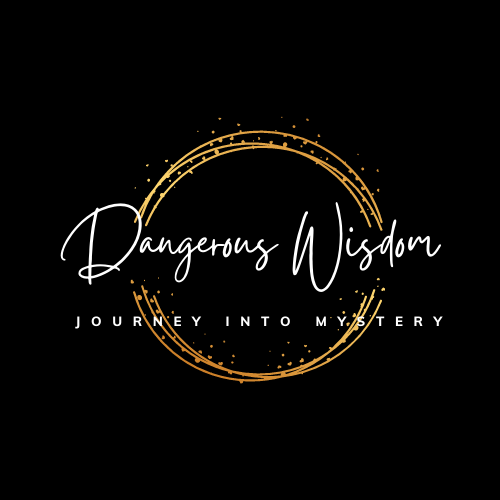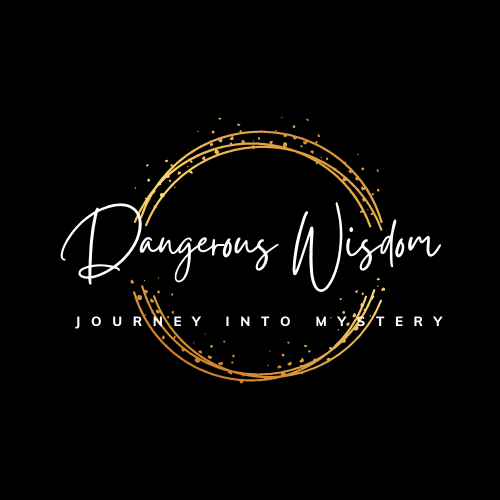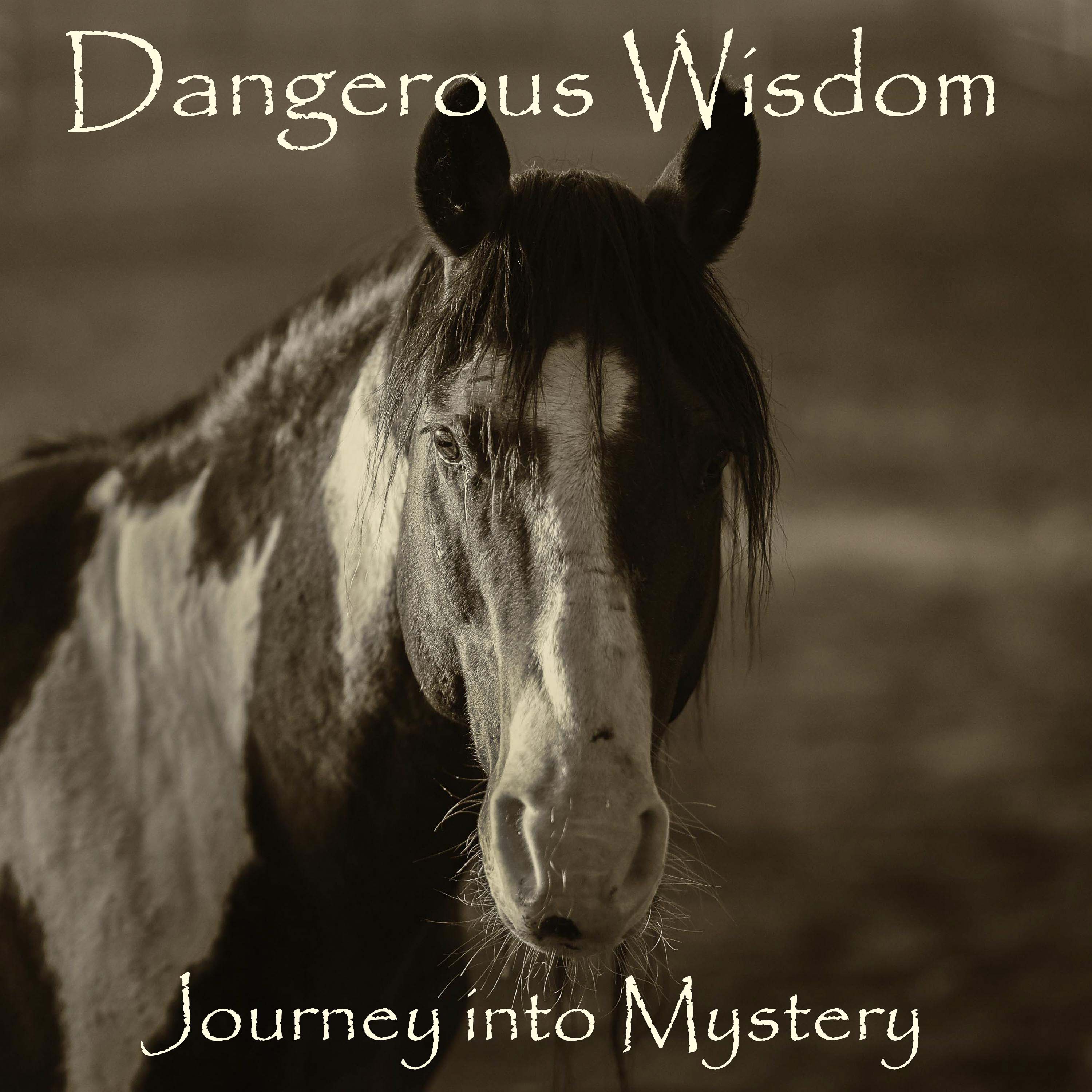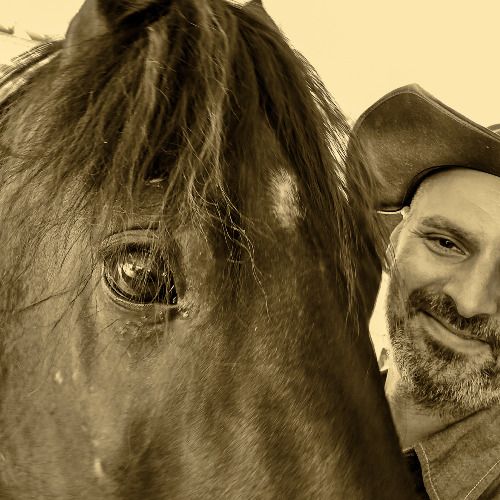5 Errors of Embodiment - Error 1 - Forgetting We Already Identify with the Body
Embodiment and somatics are big business. We need to recover our balance and our sanity, and heal our wounding in relation to embodiment. How can we do it in a way that minimizes spiritual materialism and prevents all these practices from becoming part of the self-help catastrophe and the continued elaboration of the pattern of insanity? Reflecting on some common errors of embodiment and how we can transcend them might give us some much needed nourishment.
Transcript
Five Errors of “Embodiment”—and How to Transcend Them
Note: This is a rough transcript. Since the Dangerous Wisdom podcast uses many names and terms that transcription software fails to recognize, a more accurate transcript is not possible at this time. But this version is as close as we can manage.
Listen here: https://dangerouswisdom.org/podcast
Or subscribe via your preferred podcast directory here: https://dangerous-wisdom.captivate.fm/listen
Welcome to Dangerous Wisdom, a journey into mystery and a gateway to the mind of nature and the nature of mind. This is dr. nikos, your friendly neighborhood soul doctor. I’m happy to be here with you so that together we can create a culture of wisdom, love, and beauty.
Auspicious interbeing to you and yours, my friends. Koinos Hermes, and much praise to Sophia.
Embodiment has gotten a lot of attention of late, and it pops up throughout the self-help-industrial complex. In a way, we might find that surprising, given the materialist and materialistic nature of the dominant culture—if we’re so materialistic, and so steeped in metaphysical materialism, how could we get so cut off from our own bodies? We could describe U.S. culture as rather anti-intellectual, so how did we get so apparently disembodied?
In reflecting on practices of embodiment, it’s essential to honor the sincere work people are trying to do to recover our sanity and our basic goodness, including a more vitalizing relationship with our embodiment, an intimacy with the sacredness of the body and the world.
And part of honoring our work on this—part of honoring our own suffering and the suffering of all beings, and honoring our own dignity and the dignity of all beings—part of that includes practicing honesty and clear seeing, so that we avoid self-deception and unintended negative side-effects.
It seems that, if we look with care, we find significant potential for self-deception in relation to somatic ideas and practices, such that “embodiment” can get co-opted into the pattern of insanity. We can do yoga, take walks in “nature,” explore our sexuality, and engage in all manner of “somatic” and trauma-informed practices—all while the ecologies we depend on continue to deteriorate.
This expresses a central issue of the dominant culture: We have cultivated a style of consciousness and a style of life in which human beings can think of themselves as getting better while Nature gets worse (often by means of the very same processes the humans think of as making things better—the essence of the self-help catastrophe).
In the context of such a culture (and its pervasive, effectively global influence), embodiment runs the risk of becoming countless forms of spiritual materialism and self-medication. It runs the risk of appearing as yet another round in the seesaw game of dualities: body vs. mind, reason vs. emotion, self vs. world, pattern maintenance vs. pattern transcendence.
Because so many practices of embodiment ultimately derive from the wisdom traditions, and because of the basic goodness and self-healing capacities of our bodies, minds, hearts, and world, we find them medicating—we feel better, but we miss the fuller healing potential. Spiritual materialism functions by keeping us convinced of our good intentions, we experience our embodiment work as meaningful—but we miss fuller potentials of meaning, insight, transformation.
As a consulting philosopher, part of my work involves serving as a holistic embodiment professional, and from that perspective I support the spirit of these efforts. At the same time, my training as a philosopher also helps me recognize the need to keep embodiment from getting co-opted into the self-help catastrophe. To help us resist that co-opting, and to more fully empower ourselves, we can conscientiously avoid at least five major errors:
1) Forgetting we already identify with the body
2) Forgetting that “the body” is an abstraction
3) Subtly maintaining the duality of mind and body
4) Mistaking mind-body unity as the goal
5) Failing to address the need for holism and vision
It may sound triggering for some people to even consider the notion of “errors” of embodiment. We’ve gotten to a point at which we sometimes find it challenging to acknowledge mistakes. And that’s all this amounts to: Mistakes. We all make mistakes, and we all suffer from ignorance. We don’t have to obsess over them or beat ourselves up. We can just do our best to correct them, for the benefit of all.
If we aren’t fully enlightened sages, then it empowers us greatly to acknowledge mistakes—that’s where so much learning happens. Given the context of the dominant culture, we should find it shocking if we didn’t make any mistakes as we tried to get more in touch with reality, and gain intimacy with our own embodied existence.
A little reflection on each of these errors can prove illuminating. None of these errors are always present, or always present in full force. Sometimes they appear in subtle, unintentional forms. We won’t get what we seek from “embodiment” without some extra care, compassion, and creativity in relation to them.
We will consider most of these “errors” separately (numbers 3 and 4 we can combine), and then consider how to transcend them. Embodiment has become a charged topic, and it can feel sensitive or threatening to some of us to think through it with the care we seem to need in our context. So remember to let yourself feel grounded, and pause if anything feels too overwhelming to stay with.
These short essays can’t cover everything important about embodiment, so this isn’t an exhaustive contemplation. Nevertheless, thinking through them with care may help to foster transformative insight and healing.
1) Forgetting we already identify with the body
Identification has a mercurial nature. Sometimes we identify more with the mind, sometimes more with the body. In traffic, we may identify with our car, in a debate we may identify with our ideas, and in a sports stadium we may identify with our team.
In some wisdom traditions, we may have to shave our heads to become full-time practitioners, in part because of how we identify even with our hair. This is something people leaving a long-term relationship also sometimes experience, and I have met many a person who cut their hair after ending a long-term relationship.
Faced with the possibility of losing a limb, we naturally do everything we can to save it, partly because we don’t know who we would be without that limb. If we get cancer in our liver or lung, that part of the body can feel foreign to us. One woman who had part of her colon removed in the course of treatment for disease said she wanted to take it home with her, and be buried with it when she died.
Identification with the body shows up in all sorts of ways in our culture and our lives. We all know the tropes of fiction that put a scar, limp, illness, or other conventionally unattractive elements in the physical appearance of evil characters, while good characters often get depicted as somehow outwardly hale, healthy, and conventionally attractive.
As we age, we try to hold on to our youthful appearance, and we may even seek relationships with people much younger than we are. That one, too, shows the mercurial nature of our identification process, because we may identify with a mental feeling that doesn’t go with our physical appearance, and we may thereby disidentify with the body. We play a constantly shifting game of identification, with each move in the game determined by what the ego thinks will make it feel better.
If we have a muscular body or a conventionally attractive body, we may find it more enticing to identify with our embodiment—until significant injury, illness, or aging make that identification painful. And when we don’t fit into the conventions of attractiveness in our culture, we may use that same identification with the body to revile ourselves. Alternatively, we may get more interested in our body precisely because it doesn’t conform to conventional standards, but we may thereby prolong our confusion about what we truly are, in a body that we cannot keep, and that will eventually fail, partially and then completely.
That’s a most significant issue: We will die. When we confront that basic existential fact, we may discover all manner of strange questions and feelings about the body.
When it comes to “embodiment,” we may want to keep in mind the many spiritual traditions that try to help us let go of our identification with the body. These traditions wouldn’t want us to think that, if we lose a limb for instance, we somehow lost part of our true selves, or in any way became diminished.
We might notice an irony here when we consider the religious aspect of embodiment. Many people interested in embodiment might see themselves as standing in contrast to one or more religious traditions that seem to deny the body in some way. But that supposed denial often happened in cultures that lacked the capacity or the inclination to imagine human beings free from the body in the first place.
We can put this in the form of two contrasting examples. We can suggest that the Christian traditions need the idea of resurrection precisely because certain currents in Mediterranean and European culture cannot imagine us without a body. On the other hand, Buddhist traditions don’t need resurrection, because they can imagine a sort of stem consciousness or mind stream that can be free of a body, and can then become incarnated in every form of embodiment we can imagine, from ants and apple trees to ghosts and goddesses.
That means at least some aspect of the quest to recover embodiment remains in reactive relationship with a tradition that has a hard time letting go of the body. Again, it has to do with identification with, and also attachment to, our body.
Once we see this, we can also sense how a healthy kind of nonattachment to the body doesn’t need to mean a revulsion toward or reviling of the body, but simply aims at helping us stop the process of attachment and identification that goes together with our manifold practices of embodying our suffering.
We don’t always register how we embody our suffering. But anyone who has worked with trauma has seen some of how this works, and they have seen that we accomplish it by means of unconscious processes.
As one example, if someone appears to have experienced trauma that now exists only in implicit memory, we may not identify that trauma as anything other than suffering, and the goal becomes ameliorating or eliminating that source of suffering. The wisdom traditions teach us instead to diagnose suffering itself as a need for insight, which would lead to the dissolution of the whole problem of suffering.
The wisdom traditions want to help us see how we transcend our trauma. We relate our identity and embodiment to stress, strain, and trauma—feeling there is something deeply wrong with us, or that we have lost our wholeness and basic goodness (all related to identification)—but these experiences are not essential to our true nature (and thus the identification causes our suffering, rather than the painful or traumatizing events).
These traditions often teach us that what we truly are will continue after this particular body dies. That would make it quite important to recognize we are not our bodies. We should also remember we are not our minds—at least not the “mind” we habitually experience.
But identification lures us into an attachment to the body and the mind, rather than a reverential and open-minded enjoyment of our relative embodiment. Because of our sometimes intense and unconscious identification with the body, various traditions have come up with some rather strong medicines to help us to become free from that identification and attachment.
Another aspect of this first error involves the spiritual materialism of turning embodiment or somatic work into a new problem to solve, or a new shortcut to the sacred. We may not see this happening, but we can get drawn into a whole somatic “project,” which gives us lots to do, and this doing goes together with identification. We start to identify as an embodied person, as a somatic practitioner, and so on. Working with embodiment doesn’t automatically give us liberating insights into our true nature, but it can feel that way since it gives us so many insights into certain aspects of our relative existence. Embodiment practices come with no easy solutions for the basic problem of human ignorance.
Many traditions see ignorance as a problem of actively misknowing what we are—whether actively misknowing ourselves as a body, as a mind, or as both—and this involves conscious and unconscious processes of identification that can prove stubbornly resistant to philosophical therapy. That resistance has contributed to the development of strong medicines.
In our time, we have come to see some of those medicines as too strong. But we should understand their intention and context, and think about their proper use and refinement. Not only does it help to remember that most of us don’t, on reflection, want to identify with the body in any narrow sense, but we must keep in mind that this identification process has powerful unconscious aspects, which we cannot control, but which we can eventually liberate.
It may also help to keep in mind that many of the wisdom traditions have had to develop their medicines in the context of dealing with large numbers of young (usually male) adherents with little understanding about how to regulate and work with their sexual energy. In such ecologies, it can make a lot of sense to offer concupiscent juveniles an array of medicines that liberate them from this energy by reminding them, for instance, that bodies decay and that, in general, bodies have cosmically comic aspects that can make them seem as much sexually unappealing as sexually appealing.
When our body brims with erotic energy, and at the same time we long to stabilize our mind and see the true nature of reality, we might find medicine that evokes the fuller picture of embodiment a welcome balm, even if it works, for some people, by means of evoking revulsion. That revulsion doesn’t lessen the sacredness of reality even the tiniest bit—including the sacredness of our embodiment.
This doesn’t mean we must rely on such medicines. We can develop better ones, and that will require cultural maturity. We haven’t yet mastered the regulation and the healthy, creative expression of our psychophysical energies—or liberated ourselves from the identification with the body that makes us attached to both these energies and the bodies they get directed toward. In the dominant culture, we have a long way to go to liberate all the energies of life, and enter into a truly ethical and inspired ecosensual awareness. Until we do better with all of these things, we should at least make sure we don’t forget this deep unconscious identification and attachment.



